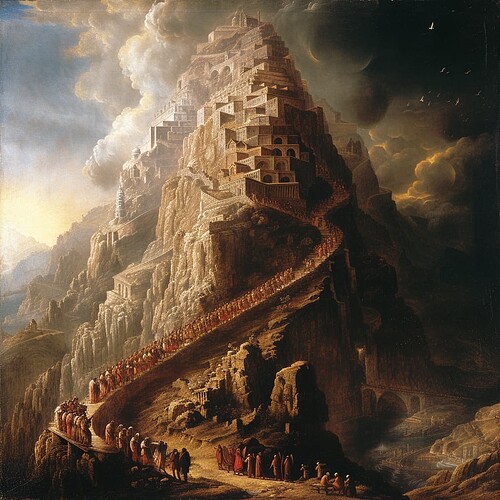 February 6: Psalm 68: The God of Sinai and of the Sanctuary
February 6: Psalm 68: The God of Sinai and of the Sanctuary
 Introduction:
Introduction:
Psalm 68 offers a poetic narrative of how God led His people through difficulties, representing triumph and deliverance. The heartfelt Psalm poses as a hymn of praise, celebrating His ultimate dominion over earthly and heavenly affairs, making the abstract divine reality feel tangible and immediate to us.
 God’s Majestic Power:
God’s Majestic Power:
Psalm 68 opens up with God displaying His might, scattering His enemies. David, the author, invites us to join in the jubilant procession celebrating God’s victories, reminding us of a powerful, victorious, Militant God.
Key Verse: Psalm 68:1 - “May God arise, may his enemies be scattered; may his foes flee before him.”
 God, the Caretaker Of The Weak:
God, the Caretaker Of The Weak:
The Psalmist then morphs into describing God’s caring, nurturing character, with particular emphasis on His provision for the lonely, the fatherless, and the prisoners.
Key Verse: Psalm 68:5 - “A father to the fatherless, defender of widows, is God in his holy dwelling.”
 Key Themes and Reflections:
Key Themes and Reflections:
-
God’s power and might: This Psalm serves as a refreshing reminder that our God is not passive but active, strong, and militant when it comes to protecting His people.
-
God’s Love and Compassion: God is depicted as a parent, a defender, and a comforter of the weak, signifying His concern and care for all humanity.
 Today’s Application:
Today’s Application:
Understanding God’s dual nature - strength and compassion - can bring comfort during difficult times. When facing struggles, remember - our God is both a powerful combatant of our enemies and a tender, compassionate comforter.
 Hidden Gem:
Hidden Gem:
Psalm 68 is rich with historical and cultural reflections, making it one of the most complicated Psalms to interpret but in its complexity lies its beauty.
 Reflective Q&A:
Reflective Q&A:
![]() How can we echo Psalm 68 in our life?
How can we echo Psalm 68 in our life?
A: By acknowledging and praising God’s dual nature - His power in our battles and His compassion during our struggles.
![]() What comfort does Psalm 68 bring in difficult times?
What comfort does Psalm 68 bring in difficult times?
A: Understanding that our God is actively involved, fighting our battles and comforting us, can bring great peace and comfort.
 Join the Discussion:
Join the Discussion:
Consider God’s victories in your life; how can you turn these into hymns and praises? Share your thoughts and reflections here!
![]() See You Tomorrow in Psalm 69!
See You Tomorrow in Psalm 69!
Let’s continue our journey through the Psalms, exploring God’s unending love and justice. May today’s reflections on God’s power and compassion strengthen and inspire your faith.
